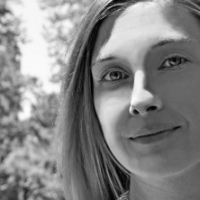With so much talk about fat-shaming and thin-shaming, what about the feelings of shame evoked by the very act of eating?
For most people this seems odd—I mean, we all need to eat, so what’s the shame in eating?
But as anyone who has experienced an eating disorder knows, this shame does not arise from eating—it comes from the embarrassment of admitting that food is our drug of choice.
Food is soothing, it is comforting. It can be something to turn to when we are lonely. It numbs emotions that are too painful to feel. Somewhere and at some time we may have learned that feeling hungry is wrong and that giving into our hunger means we are weak.
After we eat, we feel as if we have done something wrong. We feel disgusted—not only with ourselves, but with the food.
We believe that food is the enemy.
We want to forget about the bad act, so we exercise, we starve, we purge. This is how the cycle, the very shaming cycle of an eating disorder begins and continues. It is an exhausting cycle of deprivation that leaves us alone and ashamed of our behaviors. One woman who purged for over ten years recalls being tired of having to release all the emotions she was keeping inside by purging: once she decided to stop, she finally felt free.
The feelings that those of us who use food to cope experience are so intense and so overwhelming that we feel out of control. We don’t know how to begin to express them, so we keep them inside.
In this way, our food becomes a metaphor for the feelings we are too ashamed to express.
Food replaces the love that we do not show ourselves.
One woman recalls running for endless hours trying to improve her marathon time. She would run over five miles a day without letting any food pass her lips until she felt she had reached her goal. She recalls striving to have the perfectly toned body, to run a marathon in record time, to get her father’s attention.
She finally did get his attention, but not in the way that she wanted: she collapsed from dehydration and starvation.
“It’s a lonely, self-deprecating, secret this thing I do with food,” another woman recalls. “I don’t mean to hurt myself. In fact, I feel in control I can concentrate better work longer. The hunger pains keep me awake.” This corporate lawyer describes how her cycle of anorexia began. She did not even like how she looked when she lost weight, but she liked the high she felt from not eating.
She didn’t know why…she just liked it.
Unfortunately, food is not a drug that we can refrain from using—we need food to live. It is shameful to admit we do not have control over food—that we do not know how to do something as basic as eating.
This is why so many women and men have such difficulty admitting they are using food to cope.
The shame is so intense and at times as isolating as agoraphobia, and the more deeply we engage in negative relationships with food, the harder it is to admit. So the cycle continues. The battle against food rages on, but it doesn’t have to. Some of the brightest, most create and intuitive people have used food to cope with feelings of self-loathing and hatred.
I write this for anyone who has experienced shame surrounding their eating habits. I was once embarrassed, shied away from dining with friends and overall felt undeserving of food. I’d shame myself by asking questions like this:
What was wrong with me?
Don’t you have any self-control?
Why do you have to be so picky?
Until one day, like the woman who purged for years, we get tired of hiding behind the food and are ready to set our feelings free. It is hard and scary to drop the control that we think we have. We may not know what to with feelings of hunger and never feeling that any amount of food could satisfy us.
That is natural. And it is okay to ask for help. There are so many great resources out there to offer support.
We are not alone, it is okay to feel and there is no shame in eating.
References & Resources:
1. Psychology Today
2. National Eating Disorders Website
3. Healing for Eating Disorders
Author: Jane CoCo Cowles
Editor: Renée Picard
Image: Thomas Abbs/Flickr


 Share on bsky
Share on bsky





Read 0 comments and reply